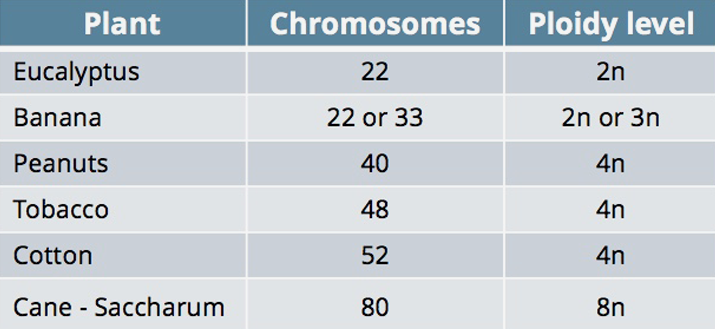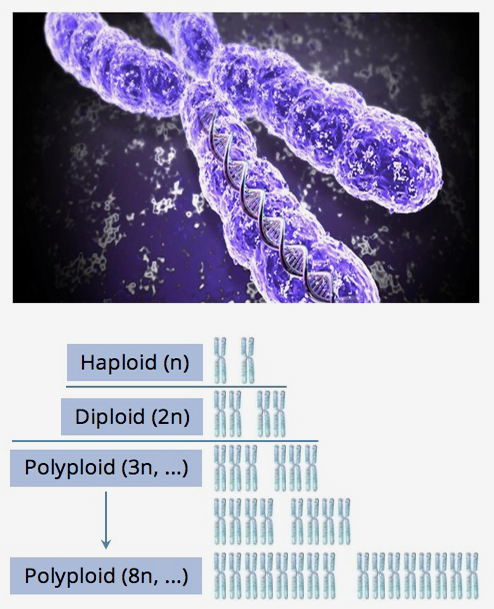Energy Crops | Evolution & Genetic improvement
Polyploid (Energy Cane) x Diploid (Eucalyptus)
Ploidy refers to the number of sets of homologous chromosomes present in the genome of a cell or an organism.
Polyploidy is a genetic condition in a cell where there are more than two sets of chromosomes.
Polyploid plants hold significant importance in two areas of genetics: evolution and genetic improvement.
Polyploidy enables the creation of new cultivars with better phenotypic characteristics compared to diploid genotypes.
In general, polyploid plants tend to be more vigorous.
The increased diversity and adaptability of polyploid plants are often attributed to the accumulation of multiple genomes, compared to their parents.
Plant genome sequencing has been conducted on various species, including sugar cane in 2000 and eucalyptus in 2014.

Global planted area: Eucalyptus: 17.8 million ha (FAO 2000); Sugar Cane: 25.4 – 28.9 million ha (FAO 2000-2014);
Brazil planted area: Eucalyptus: 7.3 million ha (ABRAF 2021); Sugar Cane: 9.7 million ha (Conab – 2021/22).

